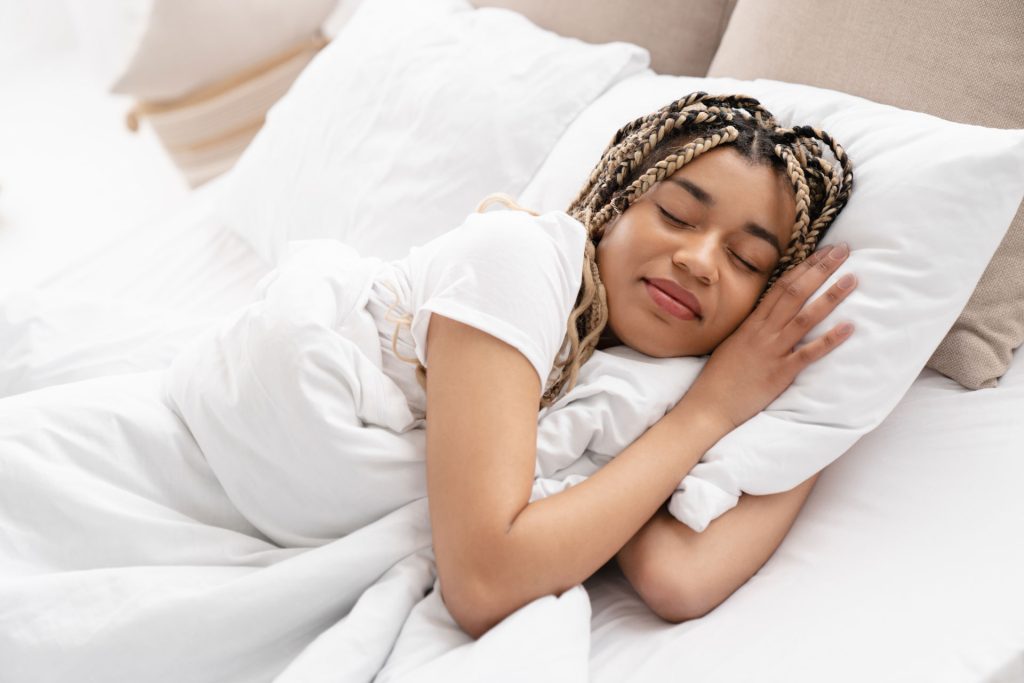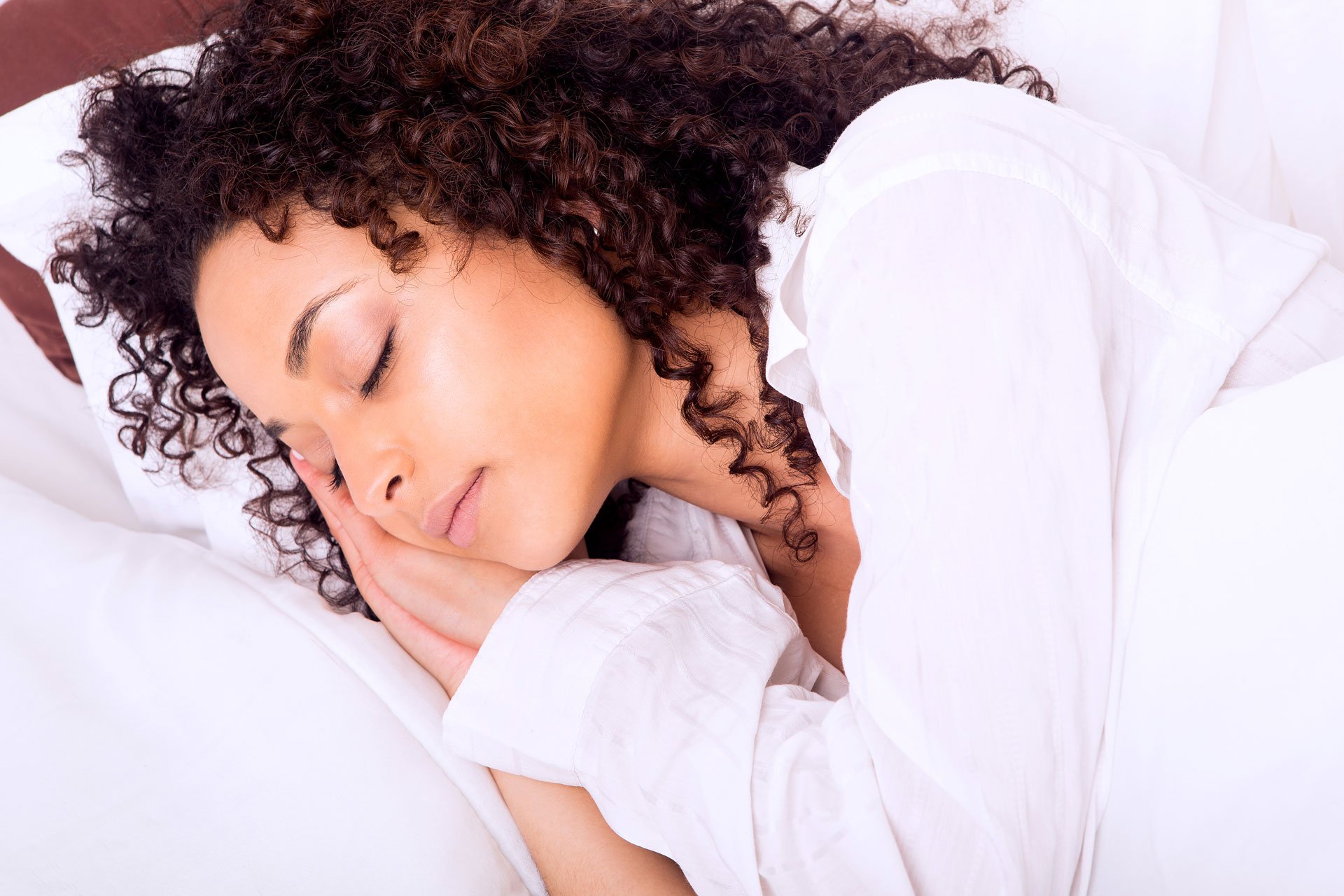Struggling to fall asleep or stay asleep can be frustrating and overwhelming, especially when stress is the culprit. Stress doesn’t just occupy your mind; it impacts your body in ways that can drastically disrupt sleep. Racing thoughts, elevated heart rate, or a constant feeling of unease can keep you tossing and turning long into the night.
The good news is that there are effective ways to manage stress and, in turn, improve the quality of your sleep. By exploring targeted stress-reducing therapies, you can create a sense of calm and prepare both your mind and body for restful nights.
The Link Between Stress and Sleep Disruption
Stress plays a significant role in disrupting sleep patterns, creating a cycle that can be challenging to break. When you’re stressed, your body reacts by releasing hormones such as cortisol and adrenaline as part of the fight-or-flight response. While these responses are essential in emergencies, they can wreak havoc on your ability to relax and fall asleep. Heightened alertness, racing thoughts, and physical tension are common symptoms that delay sleep onset, disrupt deep sleep, or lead to frequent awakenings throughout the night.
This bidirectional relationship—where stress disrupts sleep, and poor sleep amplifies stress—can spiral into chronic issues. For instance, insufficient sleep lowers resilience to everyday stressors, making you more emotionally reactive and less able to cope. Over time, this can contribute to serious health conditions, including depression, anxiety, and a weakened immune system.
Fortunately, there are steps you can take to calm your mind and promote better sleep. Practices like mindfulness meditation and deep breathing exercises can reduce stress by helping you focus on the present moment and quiet your thoughts. Establishing a regular sleep schedule and creating a relaxing bedtime routine—such as taking a warm bath or journaling to offload worries—can also help signal to your body that it’s time to rest.
By making these adjustments, you can break the vicious cycle of stress and sleep disruption, paving the way for restorative rest and improved overall well-being.
Related: Your Guide to Understanding the Types and Causes of Seizures
Mindfulness and Meditation Practices

Mindfulness and meditation are powerful tools for enhancing sleep quality, especially for those battling stress-induced insomnia. These practices work by calming the mind, reducing anxiety, and shifting the body from a heightened “fight-or-flight” state into a state of relaxation and rest. Mindfulness meditation, in particular, helps you focus on the present moment, allowing you to release racing thoughts and overwhelming worries that can keep you awake.
Studies show that meditation lowers heart rate and reduces cortisol, the stress hormone, mimicking the physiological changes your body undergoes as it prepares for sleep. Techniques such as guided imagery, progressive muscle relaxation, or mindful breathing can ease mental tension, fostering a serene environment that promotes falling and staying asleep. People practicing mindfulness also report fewer disruptions during the night and overall improved sleep quality.
To incorporate mindfulness into your bedtime routine, start with simple practices. Try deep breathing, such as inhaling for a count of four and exhaling for a count of four, to signal relaxation to your body. Body scan meditations, where you focus on each part of your body and release tension, are another effective method. Guided meditation apps or podcasts can also provide structured sessions tailored to sleep.
Aim to practice for 10–20 minutes before bed in a quiet, comfortable setting. Over time, these habits can become an integral part of your nightly routine, helping you transition from a busy day to restful sleep with greater ease.
Related: From Fatigue to Vitality: How IV Therapy Fuels Your Energy Levels
Exercise as a Stress Management Tool
Exercise is one of the most effective ways to manage stress and improve sleep quality. Physical activity helps counteract the effects of stress by reducing cortisol levels and releasing endorphins, commonly known as “feel-good hormones.” These chemical changes in the brain create a sense of well-being and relaxation, making it easier to fall and stay asleep. Exercise also promotes the natural regulation of the body’s sleep-wake cycle, leading to more restorative sleep. Additionally, it helps alleviate anxiety and depression, which often interfere with sleep patterns.
Engaging in regular exercise can alter sleep architecture by increasing non-rapid eye movement (NREM) sleep, the restorative phase during which the body repairs itself. Studies also show that consistent physical activity reduces rapid eye movement (REM) sleep disturbances, leading to more restful nights and better mental clarity the next day.
If you are struggling with sleep due to stress, consider incorporating exercise into your daily routine. Here are some practical tips to help you get started:
- Take Daily Walks: Go for a brisk 20 to 30-minute walk in the evening to relax your body and mind before bedtime.
- Try Yoga or Tai Chi: These low-intensity exercises combine movement and mindfulness, effectively reducing stress.
- Engage in Aerobic Activities: Running, swimming, or cycling can help release pent-up tension and enhance overall mood.
- Stretch and Relax: Spend 10 minutes doing light stretches before bed to reduce muscle tension.
- Be Consistent: Aim for at least 150 minutes of moderate-intensity exercise each week for lasting benefits.
By making exercise a regular part of your day, you can reduce stress and achieve better sleep.
Related: Essential Tremor vs. Parkinson’s Disease: Key Differences and Similarities
Relaxation Techniques for Restful Nights
Finding it hard to sleep after a stressful day? Relaxation techniques can be incredibly effective in calming the mind and preparing the body for a deep, restorative night’s sleep. These methods work by reducing stress hormones, slowing your heart rate, and activating the body’s natural relaxation response. Here are some evidence-based techniques and tips to incorporate into your bedtime routine:
- Practice Deep Breathing: Simple exercises like diaphragmatic breathing or 4-7-8 breathing help to lower stress levels. For example, breathe in deeply through your nose for four seconds, hold for seven seconds, and slowly exhale through your mouth for eight seconds.
- Try Guided Visualization: Engage your mind by imagining calming scenes, such as a peaceful beach or a quiet forest. Visualization can reduce anxiety and help distract you from racing thoughts.
- Use Progressive Muscle Relaxation: Tense and relax each muscle group in your body, starting from your toes and gradually moving upwards. This method helps release physical tension and promotes overall relaxation.
- Explore Yoga Nidra: Sometimes called “yogic sleep,” this meditative practice combines mental imagery with body awareness to induce a deeply relaxed state.
- Create a Wind-Down Routine: Dedicate 30 minutes before bed to consistent relaxation. Dim the lights, avoid screens, and perhaps take a warm bath or shower to prepare your body for rest.
Implementing these techniques regularly can transform your nights, helping you break free from the cycle of stress and poor sleep. Over time, you’ll find it easier to unwind and drift off peacefully.
Related: Ischemic Stroke: Risk Factors, Symptoms, and Prevention Tips
The Importance of Sleep Hygiene

Sleep hygiene refers to the habits and environment that support consistent, high-quality rest. It plays a critical role not only in improving sleep but also in promoting overall health. For individuals struggling with stress-induced insomnia, maintaining good sleep hygiene can be a turning point, as it fosters a regular sleep pattern and creates an optimal setting for restorative sleep.
Good sleep hygiene begins with consistency. Going to bed and waking up at the same time each day helps regulate your body’s internal clock, allowing for a more predictable and restful sleep pattern. Pairing this with a calming pre-sleep routine—such as light reading or gentle stretching—can signal to your body that it’s time to wind down.
The sleep environment itself is another essential component. A dark, cool, and quiet bedroom minimizes disturbances. Using comfortable bedding and dedicating your bed to sleep and relaxation helps your brain associate it with rest, strengthening the mental link between your bed and sleep.
Daily habits also influence sleep quality. Limiting caffeine and heavy meals in the evening, reducing screen time before bed, and incorporating physical activity during the day can significantly improve how well you sleep. These practices help regulate hormones like melatonin, which optimize your sleep-wake cycle.
Embracing healthy sleep hygiene can do more than enhance rest; it can reduce stress, improve mood, boost immune function, and enhance cognitive performance. With these benefits, prioritizing sleep hygiene becomes an essential step in supporting both body and mind.
Exploration of Alternative Therapies
For individuals struggling with stress-induced sleep difficulties, alternative therapies offer promising, non-pharmaceutical solutions for improving sleep quality. These methods range from ancient practices to scientifically-backed natural remedies, providing a holistic approach to relaxation and restfulness. Here’s a closer look at a few effective options:
- Acupuncture – This traditional Chinese technique targets specific points on the body with thin needles. It has shown potential in improving sleep quality by calming the nervous system and reducing stress.
- Relaxation Practices – Techniques like guided imagery, meditation, and yoga promote mindfulness, lower muscle tension, and create a peaceful mindset conducive to sleep.
- Herbal Supplements – Natural aids like valerian root and chamomile are commonly used to enhance relaxation and support natural sleep cycles. Valerian, for instance, may help fall asleep faster, though consulting a doctor is recommended before use.
- Tai Chi – This gentle form of martial arts integrates movement and meditation, helping to reduce anxiety and enhance sleep quality through low-impact physical activity.
- Aromatherapy – Scents like lavender have shown benefits in promoting relaxation and improving sleep duration.
The efficacy of these therapies varies, and it’s essential to tailor treatments to individual needs. For a personalized approach, visit the Center for Neurology in Lutz, Florida, where experts explore such therapies. Dr. Kavita Kalidas, a board-certified neurologist and UCNS-certified headache specialist, provides comprehensive care to address sleep and stress-related concerns. Discover how alternative therapies might transform your nights into restful, rejuvenating sleep.

